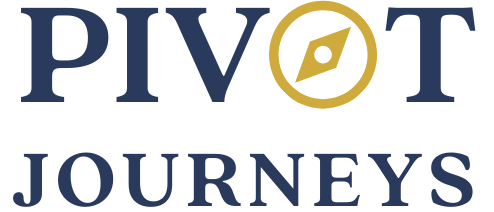When & How to Check In After an Interview
Last week I was on a call with a client who was getting to the final stages in an interview process and hoping to hear about an offer any moment.
“Should I check in tomorrow, or wait till next week?” she asked.
You’ve probably been there before too, right? You want to know where things stand but you don’t want to be a pest. It can feel really tricky, especially in this job market, to know when and how to check in on your candidacy.
Here are a few practical tips I recommend:
Remember that 5 days for you feels like 5 hours for the employer. Generally, hiring for a role always takes longer than the hiring manager thinks it’s going to. So be patient and remember that while you’re excited and anxious to hear from them, they’ve got a lot of other priorities aside from filling the position.
There may be a number of different reasons you haven’t heard back, and many have nothing to do with you. In today’s world, budget are shifting and changing constantly. Priorities for companies and teams may be evolving. Other senior leaders may have competing candidates or priorities.
If the above reasons aren’t why you’re not hearing back, it’s possible the organization is waiting to get a larger pool of candidates – and many times that takes longer than they think it will.
Use the 10 Day Rule. After your interview, plan to wait 10 days before checking in if they said they’d be in touch ‘next week.’ (Don’t forget to send a thank you note ASAP after your interview though!) If you don’t hear anything after your first check in, wait and reach out again another 10 days later. However, if the employer said you could expect to hear next steps in 2 weeks, you should wait 15-20 days for your initial outreach to inquire about the status of the position.
Add value in your communications whenever possible. Not sure what to write in your follow up email? The goal should be to show you’re actively thinking about how you can help them with their goals and add value before you’re even in the role. So you want to make it specific to you and the role or organization.
If possible, you might share a recent accomplishment or piece of work that relates to the work you’d be doing in that role. You might send along an article or resource that ties to the conversation you had with someone that you think might add value to their work or that they’d be interested in.
Here’s a basic follow up email template to customize:
Dear X –
Thanks again for taking the time [last week/day you spoke] to talk with me about the [role]. Since our conversation, I’ve gotten even more excited about the opportunity to [what you’d be doing/a specific project/piece of work/make an impact on].
[Share a resource or additional info about your work that ties to the conversation you had or the open position, or state something that you think will make you a great addition to the team.]
I wanted to check in on next steps in the process. Please let me know if you or the team needs any additional information, and I’d love to know what the next step might be.
Best,
[Your name]We all know how dispiriting it can be to spend time and energy on an application and an interview to not hear back. It feels like common decency that the employer would do us the kindness of letting us know what’s going on, but unfortunately that doesn’t always happen. Try to remember that the person you spoke with isn’t intentionally trying to make you feel horrible. If you’ve checked in two or three times, and haven’t heard anything, redirect your efforts towards more applications and networking.
Psst!: If you’ve been interviewing for a while but haven’t managed to get an offer, it might be time to evaluate your interviewing strategy. Our Interview Skills Course can help.
